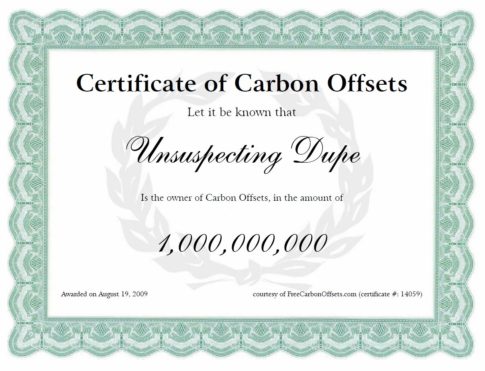– Carbon credit climate scam: the fraud prosecutions begin:
Guest opinion by Christopher Monckton of Brenchley
The London Evening Standard has a very interesting story today (20 September 2016) describing the first day of a professor’s fraud trial at Southwark Crown Court, London, for operating an alleged £60 million climate-related tax dodge.
The story, headed World-famous conservationist “was part of £60 million eco-projects tax scam”, says prosecutors allege that Professor Ian Swingland, a “renowned conservationist” who collected an Order of the British Empire from the Queen in 2007, together with four accomplices, had helped investors avoid tax on £170 million of income during a three-year “scam”.
Swingland, 69, founded the “Durrell Institute of Conservation and Ecology” in 1989 at the University of Kent. It is now described as “a world-leading research facility into biodiversity, communities and sustainable development”.
Julian Christopher QC, prosecuting, said: “They were opportunities to invest in research designed to counteract the effects of climate change and to find a cure for HIV. They were designed to be attractive to people who had a large amount of income that they would rather not pay tax on.”
The prosecution told the court that Professor’s four alleged accomplices were all involved in film financing as a way of reducing tax bills. Swingland is said to have joined them when they switched to eco-projects.
It is alleged they ran the scam by trading so-called “carbon credits”, so the “money would be invested in research into reafforestation”, said Mr Christopher. But “nothing like” the amount said to be going into research was actually spent on research.
The four alleged accomplices each deny two counts of cheating the public revenue. Two of them also deny one count of conspiracy to commit fraud by false representation.
Professor Swingland denies one count of each charge. The trial, for which the public authorities have been preparing for several years, continues.
It remains to be seen whether the public authorities, as they gradually awaken to the reality that “global warming” is not a global crisis but a global scam, will follow up reports they have received of fraudulent misrepresentation by climate “scientists” in academic papers.
So far, the authorities are proving reluctant to prosecute scientific scamsters for publishing bogus results in the learned journals, because they still adhere to the misguided belief, explicitly ruled out by a change in the law of the United Kingdom some years ago, that one must be able to quantify the amount of money gained by the fraudsters or lost by their victims before one can prosecute.
In the United Kingdom, fraud was originally a common-law offense. Then Parliament decided to codify it, and it has been regularly rewriting the law ever since, with the effect of widening the definition and making the task of prosecutors easier. But the investigating authorities – the police and the Crown Prosecution Service – have not yet adjusted to the change in the law.
They are moving against Professor Swingland because they allege that he and his accomplices made specified sums. But, even where the police acknowledge that a false representation has been made in a scientific paper, and even where they also acknowledge that either the perpetrators have made money or their victims have lost money, they continue to regard academic research as somehow sacrosanct, and, in at least one case, they have ducked out of investigating a scientific fraud in a published paper on the ground that they could not quantify exactly how much the scamsters had made for themselves, or exactly how much they had cost taxpayers.
I suspect that the only way to persuade the police and prosecutors to do their duty and move against those who have made downright false claims and have wilfully misrepresented their results at taxpayers’ expense is to shame them by instituting successful private criminal proceedings against one or two of the worst offenders.
In the United States, private criminal proceedings are not possible, which is why so many crooks at government level go unpunished. In the United Kingdom, however, section 1 of the Justices of the Peace Act 1361 states quite clearly that any citizen may approach any judge or magistrate and lay before him an information to the effect that a crime has been committed, whereupon, so long as the information is not manifestly frivolous, the judge is bound to order an investigation.
By chance, in an unrelated field I once had to exercise this right. A dozen ago, when some consultancy clients of mine were being bullied by a corrupt public authority, that authority made the mistake of circulating a false report to Ministers. However, I had formerly worked at 10 Downing Street, and a copy of the report reached me. I went to London and appeared before the magistrates. Thereupon, heads rolled right across Whitehall.
I have been making steady progress in preparing the first of two or three index cases in which scientific “researchers” or the “universities” that shoddily provide cover for them have committed open scientific frauds. It will only be necessary to succeed in one or two of these cases and the rest of the scamsters will realize the game is up and will run for cover.
I have no idea whether Professor Swingland or his alleged accomplices are guilty of anything, but the fact that the public authorities are at last willing to move against alleged climate scamsters – something that would not have been possible under the sappy, wet true-believing regime of “call-me-Dave” Cameron – is, whatever the outcome of the trial, a significant step in the direction of reminding the profiteers of doom that governments will no longer automatically provide protection for them and that they are, after all, subject to just the same laws as the rest of us.

H/t reader kevin a.
* * *
PayPal: Donate in USD
PayPal: Donate in EUR
PayPal: Donate in GBP